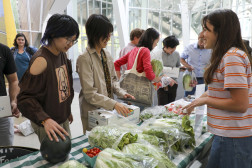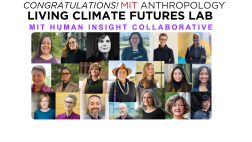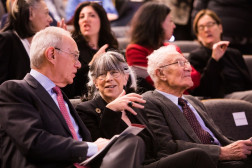Recent News
A volunteer-driven pilot program brings low-cost organic produce to the MIT community.
Stephanie M. McPherson | School of Humanities, Arts, and Social Sciences
November 25, 2025
Purity and Danger, a Milking It podcast episode
November 25, 2025
Part magic, part social experiment, visiting artist Jeanette Andrews’ “The Attestation” examines preconceived notions and belief polarization.
Adam Conner-Simons | Arts at MIT
November 20, 2025
Living Climate Futures Lab awarded inaugural MITHIC Faculty-Driven Initiative Seed Grant
MITHIC Staff
May 21, 2025
Susan Silbey one of Six MIT Faculty Members elected to American Academy of Arts and Sciences for 2025
MIT News | Image: Jake Belcher
April 24, 2025




